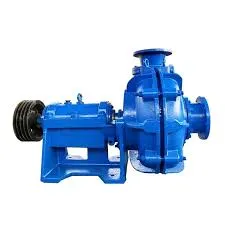Yoruba
- Afrikaans
- Albanian
- Amharic
- Arabic
- Armenian
- Azerbaijani
- Basque
- Belarusian
- Bengali
- Bosnian
- Bulgarian
- Catalan
- Cebuano
- Corsican
- Croatian
- Czech
- Danish
- Dutch
- English
- Esperanto
- Estonian
- Finnish
- French
- Frisian
- Galician
- Georgian
- German
- Greek
- Gujarati
- Haitian Creole
- hausa
- hawaiian
- Hebrew
- Hindi
- Miao
- Hungarian
- Icelandic
- igbo
- Indonesian
- irish
- Italian
- Japanese
- Javanese
- Kannada
- kazakh
- Khmer
- Rwandese
- Korean
- Kurdish
- Kyrgyz
- Lao
- Latin
- Latvian
- Lithuanian
- Luxembourgish
- Macedonian
- Malgashi
- Malay
- Malayalam
- Maltese
- Maori
- Marathi
- Mongolian
- Myanmar
- Nepali
- Norwegian
- Norwegian
- Occitan
- Pashto
- Persian
- Polish
- Portuguese
- Punjabi
- Romanian
- Russian
- Samoan
- Scottish Gaelic
- Serbian
- Sesotho
- Shona
- Sindhi
- Sinhala
- Slovak
- Slovenian
- Somali
- Spanish
- Sundanese
- Swahili
- Swedish
- Tagalog
- Tajik
- Tamil
- Tatar
- Telugu
- Thai
- Turkish
- Turkmen
- Ukrainian
- Urdu
- Uighur
- Uzbek
- Vietnamese
- Welsh
- Bantu
- Yiddish
- Yoruba
- Zulu
Telephone: +86 13120555503
Email: frank@cypump.com
Dec . 04, 2024 22:31 Back to list
Effective Solutions for Wastewater Pumping in Environmental Management Systems
Waste Water Pump Essential Component in Waste Management
Waste water pumps are critical devices used in the management and treatment of waste water, which is any water that has been adversely affected in quality by anthropogenic influence. This includes water from homes, industries, and commercial establishments. With the increasing emphasis on sustainable waste management practices and the need to safeguard public health and the environment, waste water pumps play an essential role in controlling and treating waste water effectively.
The Importance of Waste Water Pumps
The primary function of waste water pumps is to transport waste water from its source to treatment facilities. These pumps are designed to handle various types of waste water, including sewage, gray water, and industrial effluent. By efficiently moving waste water, these pumps aid in reducing the risk of flooding and water pollution, which can have devastating effects on both ecosystems and human communities.
In many urban areas, the infrastructure for waste water management is crucial. Waste water pumps help to ensure that waste water is steadily collected and transported, maintaining the efficiency of sewer systems. This not only prevents overflow conditions but also minimizes the risk of groundwater contamination, protecting both public health and the environment.
Types of Waste Water Pumps
There are several types of waste water pumps, each designed to meet specific needs. The most common types include
1. Submersible Pumps These pumps operate while submerged in waste water. They are particularly effective for removing water from flooded areas or handling waste water in treatment plants. Their design allows them to be placed directly in the waste water, minimizing the risk of clogging since they can handle solid particles.
waste water pump

2. Effluent Pumps Designed to transport relatively clean waste water, effluent pumps are typically used in effluent treatment systems. They are suitable for carrying waste water that has undergone preliminary treatment and is ready for distribution or further treatment processes.
3. Sewage Pumps These pumps are specifically built to handle raw sewage and can manage solids and debris within waste water. Sewage pumps are commonly used in municipal waste water systems and are critical to maintaining effective sewage disposal.
4. Grinder Pumps Grinder pumps are equipped with sharp blades that grind solids into smaller particles before pumping. This technology enables the efficient transport of waste water from areas where conventional sewer systems are not feasible, thus facilitating more flexible waste management options for properties that lack direct sewer access.
Operational Considerations
When selecting and operating waste water pumps, several factors must be taken into account, including pump capacity, the nature of the waste water, and the specific application. Proper sizing is essential to ensure that the pump can handle the flow rates and pressures required by the system. Additionally, regular maintenance is critical to prolong the life of the pump and prevent mechanical failures, which can lead to costly repairs and environmental hazards.
Conclusion
As urbanization continues to rise and water scarcity becomes a pressing issue worldwide, the role of waste water pumps in waste management is more significant than ever. By facilitating the efficient transport and treatment of waste water, these pumps contribute to sustainable water management practices that protect public health and preserve environmental quality. Investing in modern waste water pumping technology can provide communities with reliable solutions to their waste management challenges, ensuring that waste water is effectively controlled and minimally impacts surrounding ecosystems. With the advancement of technology and increased awareness about environmental sustainability, waste water pumps are set to evolve further, offering even more effective and efficient solutions for the challenges of waste water management.
-
Heavy-Duty Mining Sludge Pumps - Wear-Resistant Slurry Handling
NewsAug.02,2025
-
Horizontal Split Case Pump with GPT-4 Turbo | High Efficiency
NewsAug.01,2025
-
ISG Series Pipeline Pump - Chi Yuan Pumps | High Efficiency, Durable Design
NewsAug.01,2025
-
Advanced Flue Gas Desulfurization Pump with GPT-4 Turbo | Durable & Efficient
NewsJul.31,2025
-
ISG Series Vertical Pipeline Pump - Chi Yuan Pumps | Advanced Hydraulic Design&Durable Construction
NewsJul.31,2025
-
ISG Series Vertical Pipeline Pump - Chi Yuan Pumps | Energy Efficient & Low Noise
NewsJul.31,2025










